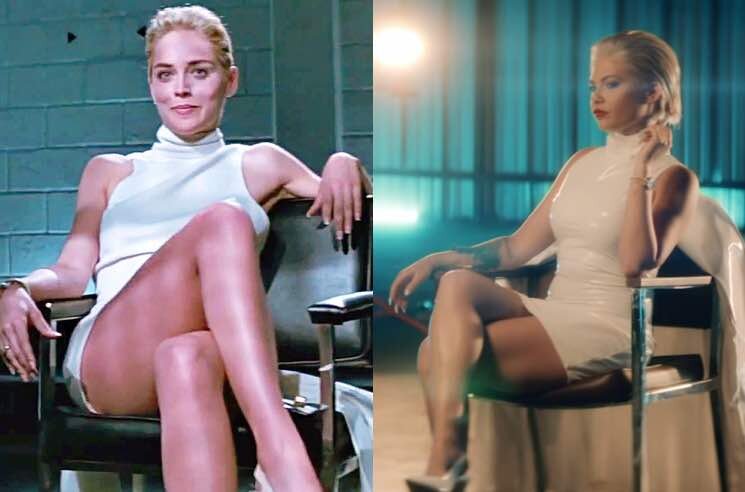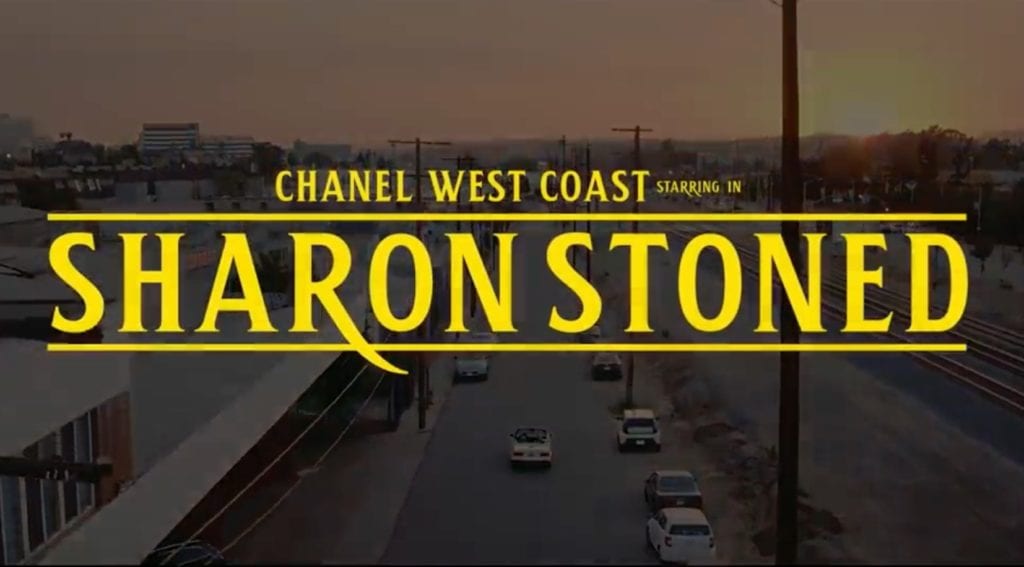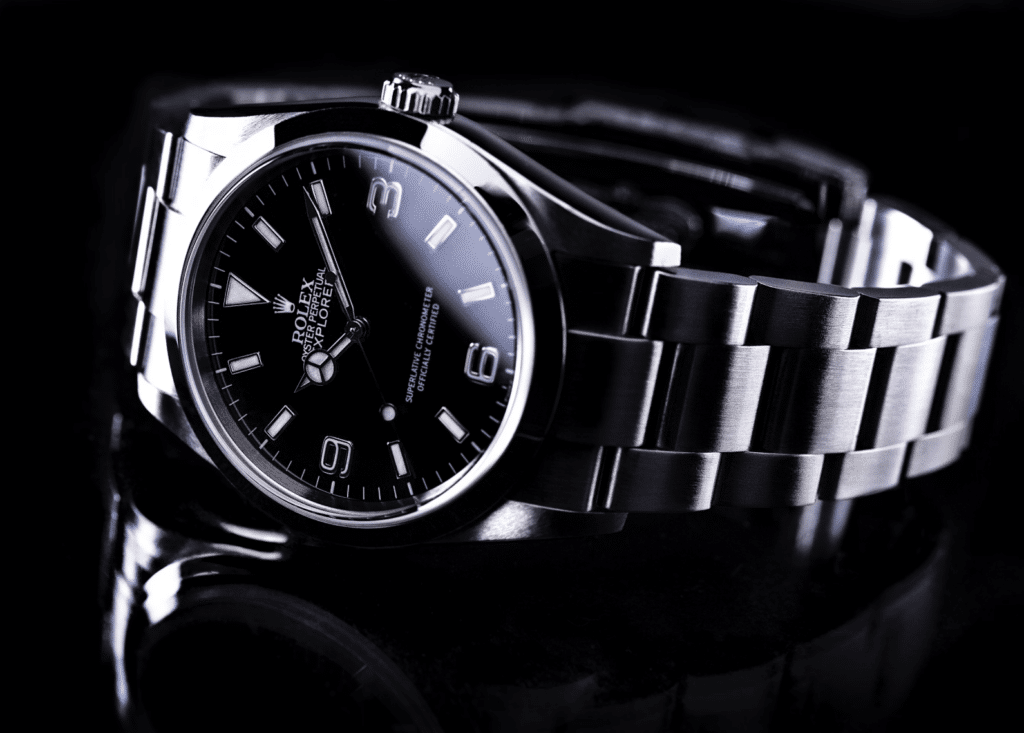It turns out that while Chanel and Chanel West Coast have managed to co-exist peacefully despite their similar names, the rapper has ruffled the feathers of actress Sharon Stone thanks to a 2018 song called … Sharon Stoned, and the recently-released music video for the single, which was “shot to evoke Sharon Stone’s name, likeness, image, identity, and persona associated with her iconic movie roles,” the actress asserts in a newly-filed lawsuit against Chelsea Dudley, who is best known by her stage name, Chanel West Coast.
According to the complaint that counsel for Sharon Stone filed in a California federal court early this week, thanks to her starring roles in feature films, such as Basic Instinct, Casino, and Total Recall, among many other feature films and television shows, Stone has “attained an extraordinary level of popularity and fame” across the globe. As such, her “name, likeness, image, identity, and persona are widely known by a substantial segment of the public in the U.S. and internationally,” and thus, are “valuable commercial assets … that symbolize the level of quality associated with Ms. Stone’s products, services and entertainment performances.”
With the foregoing in mind, Stone asserts in her complaint that 31-year old Dudley, “challenged to achieve success as a rap artist … has sought to enhance her stature as a rapper by invoking and trading on the celebrity status and fame of others,” including herself. For instance, in 2018, Dudley recorded a song entitled “Sharon Stoned,” in which she “gratuitously repeats the name ‘Sharon Stone’ thirty-three times and the name ‘Sharon’ ninety-nine times,” without ever requesting or receiving Stone’s consent.
Shortly after the song was released, Stone claims that Dudley “created an infringing promotional music video,” and just as she did with the allegedly infringing song, Dudley’s “intention from the outset was to create a video that would trade on the fame and publicity rights of Sharon Stone for [her own] commercial gain.”
In addition to using Stone’s name in the written title that appears in the video, which was released in April 2019, Dudley “also purposefully designed and shot [the video] to evoke Sharon Stone’s name, likeness, image, identity, and persona associated with her iconic movie roles.” To be exact, Stone claims that the video “wrongfully exploits [her] rights associated with her performance in the Interrogation Scene [from] Basic Instinct,” which the complaint asserts is not only “one of the most iconic performances in contemporary film” but one that is “inextricably associated with Sharon Stone … in the minds of the public” nearly 30 years after the film was first released.

By using Stone’s name and by recreating the Basic Instinct scene for the music video, including Stone’s “physical appearance, attributes, traits, looks, mannerisms, qualities, characteristics, clothing, treatment and imagery,” counsel for the actress asserts that Dudley is acting “intentionally” and in “conscious disregard of Sharon Stone’s” rights, including her exclusive right to control commercial uses of her name, image, and likeness.
Such use, Stone argues, is squarely at odds with the fact that she “maintains strict control over the manner in which her likeness is used.” Stone asserts that she “has selectively endorsed, and continues to selectively endorse, various products and services, including clothing, shoes, fashion accessories, jewelry, perfume, skin care products, and fashion styling services,” but restricts the use of her likeness “to products, services and performances that are of acceptably high quality to her, in her sole discretion, and for which compensation is commensurate with the exploitation and value thereof.”
At the heart of such selectivity – which has been cited in a handful of recent lawsuits, such as those filed by Kim Kardashian against Missguided and Ariana Grande against Forever 21 – is the attempt to carefully maintain the value and marketability of Stone’s name and image and her future ability to enter into endorsements deals at the most competitive rate, particularly since, more often than not, large-scale endorsement deals depend on exclusivity, which could, in theory, be limited by Stone’s seeming involvement in Dudley’s projects.
Dudley’s use is particularly problematic, per Stone, because in addition to merely banking on the appeal of her name and likeness, Dudley is also using her “name as a celebrity endorser to promote the sale of cannabis paraphernalia without her permission or consent,” referring to the various product placements in the video, including Shine Rolling Papers, Emerald Triangle Seeds-branded marijuana, and Cured Joints. By using “Stone’s name as a celebrity endorser to promote [her] song and video” – and third-party products – “without [Stone’s] permission or consent,” Dudley has misappropriated Stone’s likeness in a way that was “purposefully designed and intended to confuse, to cause mistake, and to deceive the public into believing that Sharon Stone sponsored, endorsed, or was associated with [Dudley’s]’ products, performances, and commercial activity.”
Setting forth claims of unfair competition and violation of her right of publicity, Stone is seeking damages “in an amount to be determined at trial,” including the disgorgement of any profits that Dudley has made in connection with the song and video, and any lost profits that Stone has suffered as a result of Dudley’s allegedly infringing activities, among other things. Stone has also asked the court for a preliminary and permanent injunction in order to keep Dudley from “using [her] name, likeness, image, identity, or persona for commercial purposes without her consent.”
UPDATED (May 21, 2020): According to the case’s docket, the parties have settled their differences even before Dudley formally responded to Stone’s complaint. In a filing on May 21, counsel for Dudley notified the court the matter has been settled “to the mutual satisfaction of the parties pursuant to a confidential settlement agreement,” and Dudley thereby “respectfully requests that the Court give [Stone] 10 days to file a dismissal of the action, and any related documents, in accordance with the parties’ agreement.”
*The case is Sharon Stone v. Chelsea Dudley, 2:19-cv-09492 (C.D.Cal).














